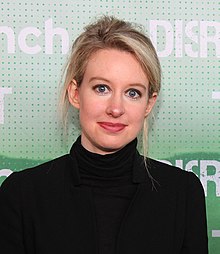Holmes, who is now 34, dropped out of Stanford to found Theranos at 19, and for a few years, her childhood and adult dreams meshed. Theranos’s blood-testing system, which the company said only required a finger prick, made it a “unicorn” — Silicon Valley parlance for a billion-dollar start-up — on paper at least. Blue-chip investors included Rupert Murdoch, Larry Ellison, Carlos Slim, Walmart heirs, President Trump’s secretary of Education, Betsy DeVos, and her family, and companies like Safeway and Walgreens, which hoped to set up wellness centers in their stores where customers could have their blood tested without involving a doctor. Theranos’s board was filled with names like former Defense secretary William Perry, former secretaries of State George Shultz and Henry Kissinger, former senator Sam Nunn, former Wells Fargo CEO Richard Kovacevich, super-lawyer David Boies, and President Trump’s secretary of Defense James Mattis, who joined in 2013 after retiring as head of U.S. Central Command.
That first Carreyrou story reported that Theranos’s blood-testing machine had significant accuracy issues and had been used for only 15 out of a claimed 240 tests. Subsequent stories revealed that the machines never really worked, would often malfunction, and could lead to inaccurate diagnoses. Today, the investors are gone; Holmes and the former president and chief operating officer of Theranos, Sunny Balwani, who was also her secret boyfriend at the time, are both facing federal criminal investigations, and they have been charged by the SEC with running an “elaborate, years-long fraud.”


